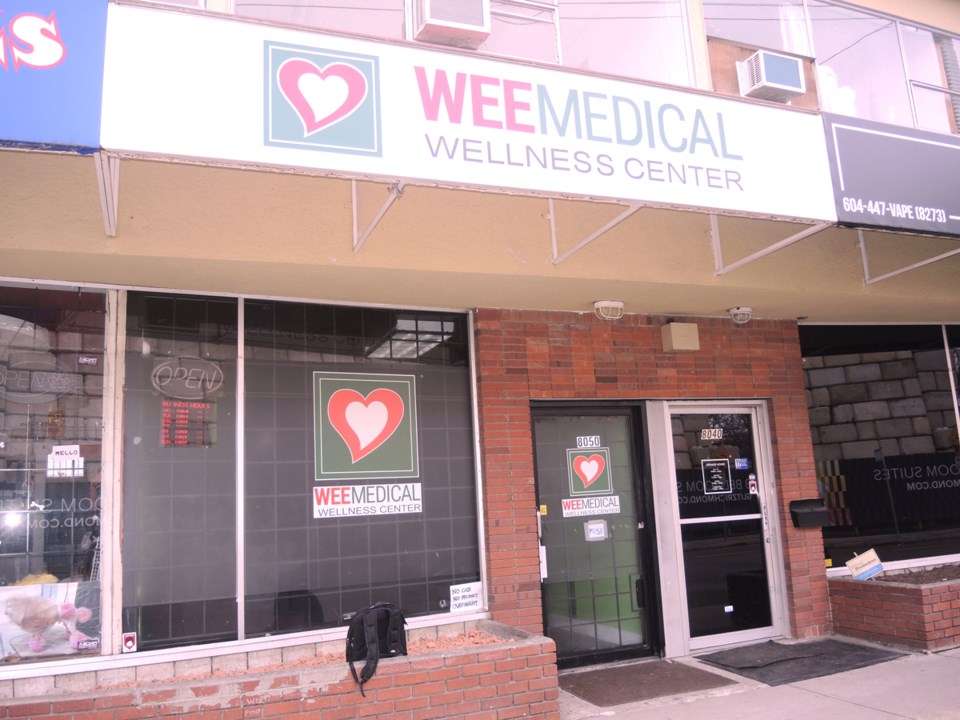Should Richmond city council make it difficult to set up cannabis retail shops in the city, residents will nevertheless be able to order products online via the provincial government’s new retailer BC Cannabis Stores.
The new public, government-operated non-medical cannabis store is branded similarly to BC Liquor Stores, announced Mike Farnworth, Minister of Public Safety and Solicitor General, Thursday in Victoria.
Farnworth announced legislation that lays the groundwork for how cannabis will be distributed and sold in B.C. once the federal government legalizes the drug this summer.
According to the government: The proposed Cannabis Control and Licensing Act (CCLA) establishes provincial control over the sale, supply and possession of non-medical cannabis, and establishes licensing of private cannabis retailers, including registration and training requirements for those who will work in cannabis retail. The act outlines restrictions on the possession, personal cultivation and consumption of cannabis by adults and prohibitions for minors.
The act is intended to keep cannabis out of the hands of children.
Public and private retailers will act not unlike liquor stores in B.C. However there is a purchase limit of 30 grams of dried cannabis. All cannabis products will be distributed through the BC Liquor Distribution Branch (LDB) — a public wholesale distribution monopoly.
The LDB stated it expects to open the first government-operated retail store and to implement an e-commerce solution to offer online sales to the public, by the end of summer 2018.
It is expected municipalities will be able to set parameters for cannabis retailers, much like they do for liquor stores. In Richmond, there is a buffer around schools for liquor stores and they must be spaced apart by 500 metres.
Council has taken a decisively conservative tone on cannabis retail shops, and opposes federal legalization under the current framework.
It recently amended its smoking regulations to include cannabis smoke.

The proposed act will:
-
Set 19 as the provincial minimum age to purchase sell or consume cannabis;
-
Allow adults to possess up to 30 grams of cannabis in a public place;
-
Prohibit cannabis smoking and vaping everywhere tobacco smoking and vaping are prohibited, as well as at playgrounds, sports fields, skate parks and other places where children commonly gather;
-
Prohibit the use of cannabis on school properties and in vehicles;
-
Authorize adults to grow up to four cannabis plants per household. However, the plants must not be visible from public spaces off the property, and home cultivation will be banned in homes used as day cares;
-
Establish a cannabis retail licensing regime similar to the current licensing regime for liquor;
-
Provide enforcement authority to deal with illegal sales;
-
Create a number of provincial cannabis offences which may result in a fine ranging from $2,000 to $100,000, imprisonment of three to 12 months, or both; and
-
Where necessary, to comply with charter rights and human rights law, exemptions will be provided to individuals who are federally authorized to purchase, possess and consume medical cannabis.
The CCLA also includes consequential amendments to various statutes, including:
-
Liquor Control and Licensing Act, to ensure administrative consistency between that act and the CCLA;
-
Residential Tenancy Act and Manufactured Home Park Tenancy Act, to prohibit cannabis smoking under existing leases that prohibit smoking tobacco and to prohibit the personal cultivation of cannabis under existing leases, except for federally authorized medical cannabis. For new leases, the existing provisions of each act that allow landlords and tenants to negotiate the terms of leases will apply;
-
Police Act, to set provincial priorities for policing and require municipal police boards to take provincial priorities and the priorities of the municipal council into account as they develop their own priorities;
-
Community Safety Act, to reflect that with legalization cannabis will no longer be a controlled substance under the federal Controlled Drugs and Substances Act;
-
Provincial Sales Tax Act, to add a reference to cannabis in the definition of “small seller” consistent with liquor; and
-
Business Practices and Consumer Protection Act, to recognize that the CCLA is a complete licensing scheme.
Motor Vehicle Act amendments:
B.C. will increase training for law enforcement, and will toughen provincial regulations to give police more tools to remove drug-affected drivers from the road and deter drug-affected driving, including:
-
A new 90-day Administrative Driving Prohibition (ADP) for any driver who police reasonably believe operated a motor vehicle while affected by a drug or by a combination of a drug and alcohol, based on analysis of a bodily substance or an evaluation by a specially trained police drug recognition expert (DRE); and,
-
New drivers in the Graduated Licensing Program (GLP) will be subject to a zero-tolerance restriction for the presence of THC (the active ingredient in cannabis).



